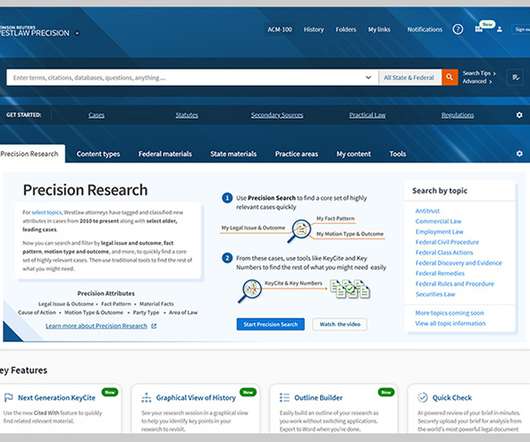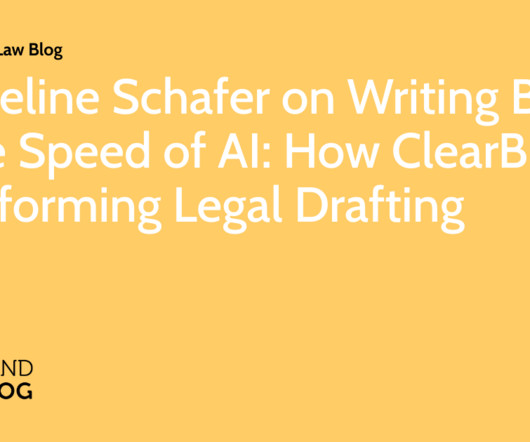Westlaw Precision: Next-Generation Legal Research With a Human Touch
Attorney at Work
SEPTEMBER 14, 2022
. “To enable more precision in search, we added more than 250 new attorney editors to mark up and classify case law in more useful ways for our customers.” At launch time, Westlaw Precision covers 12 years of cases and eight practice areas/topics.












Let's personalize your content